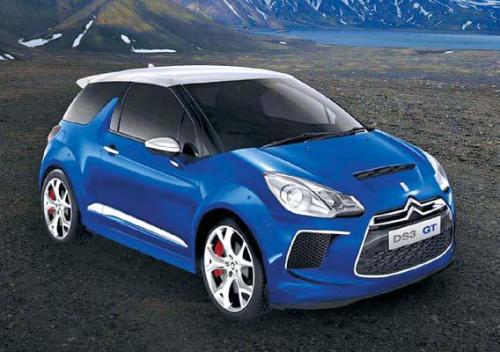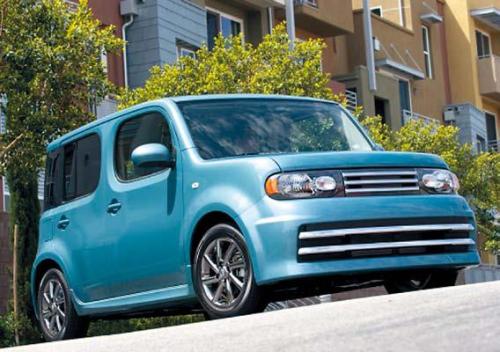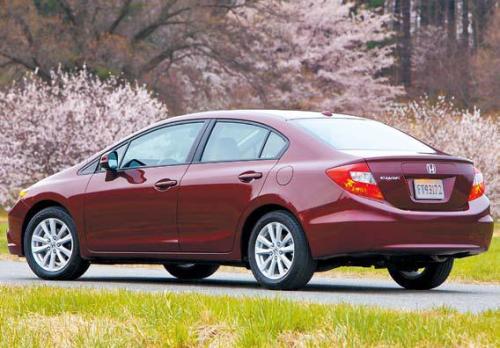Foreign automakers aggressive in launching models priced under 30 million won
A series of import cars with relatively low price tags are aggravating the worries of Korea’s automakers, who are suffering a continuing drop in month-on-month vehicle sales at home.
“Cheap import cars have emerged as a threat not only to Hyundai-Kia but companies which operate manufacturing factories in Korea ― GM, Renault Samsung and Ssangyong,” said an executive in the local automotive industry.
Among the foreign players aggressive in introducing low-priced models are Citroen, Honda, Nissan, Ford and Toyota.
Citroen, which reentered the Korean market last April as a unit of the French Peugeot-Citroen Group, has set the consumer prices of the DS3 hatchback under 30 million won ($26,500 million).
 |
The Citroen DS3 |
The DS3, aimed at young consumers in their 20s and 30s, ranges between 28.9 million and 29.9 million won.
In particular, its diesel-powered DS3 model with a 1.4 liter engine has a fuel efficiency of 25.7 kilometers per liter, the highest after Toyota’s Prius hybrid.
“It was not easy for us to set the models’ prices at below 30 million won. We believe more young Koreans will be attracted by import cars with reasonable prices,” said a spokeswoman of Hanbul Motors Corp., the official importer of PSA Peugeot-Citroen.
Hanbul Motors has a yearly sales target of 1,000 units, banking on additional new models such as the 1.6-liter DS3-diesel, the DS4 and the DS5.
“Other models including the Citroen C4 Picasso could also be introduced in the local market next year,” the spokeswoman said.
She added that affiliate Peugeot’s 207GT is priced at 25.9 million won.
Nissan’s Cube, a characteristic box-like model, has been gaining popularity since the third quarter of 2011. It is priced between 22.6 million and 25.6 million won.
 |
The Nissan Cube |
 |
The Honda Motor Civic |
The Cube held the best-selling import car position last November with monthly sales of 753 units.
Honda Korea’s Civic and Insight have also gained attention among young motorists as their price tags are set under 28 million won.
The import models are priced competitively compared to Hyundai’s Sonata and Kia’s K5.
Dealers of Hyundai Motor cars agree that the fiercer competition between foreign and domestic companies is unavoidable.
“But it will take several more years for the import brands to gain a bigger slice of the pie in Korea,” a dealer said, pointing high costs and longer time for vehicle repairing.
But he said shared the view that it is time for Hyundai-Kia to take realistic countermeasures to overcome the sluggish sales at home.
“Some local consumers are complaining over the price difference between Hyundai-Kia cars for local consumers and overseas ones,” he said.
The others, active in selling cheap cars, include Ford and Toyota.
Consumer prices of the Focus SEL models of Ford Motor have been set at 28.95 million and 29.65 million won.
A model of the RAV4 and the Corolla of Toyota is priced at 29.9 million won and 25.9 million won, respectively.
Foreign carmakers saw their sales of small vehicles with an engine capacity of less than 2.0 liters grow by 65.5 percent on a year-on-year basis.
The trend is attributable to high oil prices and a variety of cheaper models introduced by them to compete with Korean sedans.
The new models include Mercedes-Benz C200, Audi A4 and Volkswagen’s CC 2.0TDi.
Smaller vehicles account for almost half of all import cars sold, according to the Korean Automobile Importers and Distributors Association.
In terms of prices, sales of imported cars between 30 million won and 40 million won took up about 30 percent of the local market, a nearly 10 percentage-point increase over the past five years.
The import car industry saw their market share top 1 percent for the first time in 2002.
Buoyed by active sales of smaller sedans among newcomers such as Peugeot and Honda in early 2000s, import vehicles’ combined market share continued to grow to top 5 percent in 2007.
Now they are grabbing 10 percent of the Korean automobile market.
An import car dealer said that more and more customers want to buy an imported car but not just because it’s foreign or more expensive.
“Korean companies’ cars are great now, but they believe there is too little choice and the price differences aren’t all that much these days anyway,” he said.
By Kim Yon-se (
kys@heraldcorp.com)







![[Exclusive] Hyundai Mobis eyes closer ties with BYD](http://res.heraldm.com/phpwas/restmb_idxmake.php?idx=644&simg=/content/image/2024/11/25/20241125050044_0.jpg)
![[Herald Review] 'Gangnam B-Side' combines social realism with masterful suspense, performance](http://res.heraldm.com/phpwas/restmb_idxmake.php?idx=644&simg=/content/image/2024/11/25/20241125050072_0.jpg)

